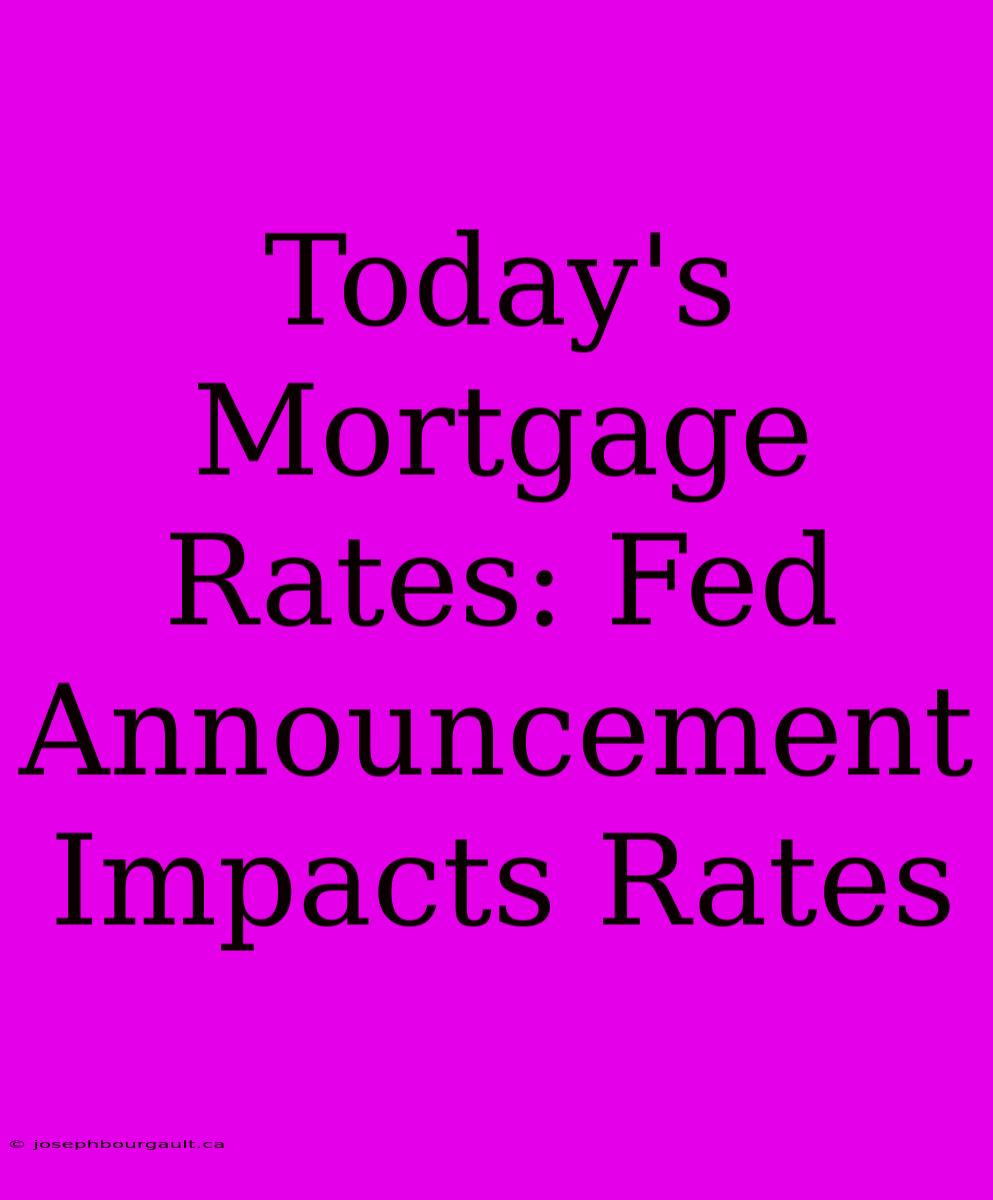Today's Mortgage Rates: Fed Announcement Impacts Rates
The Federal Reserve's latest announcement has sent ripples through the mortgage market, impacting rates for both fixed and adjustable-rate mortgages (ARMs). While the Fed has signaled its intention to raise rates further, understanding the nuances of this decision and its implications for borrowers is crucial.
Understanding the Fed's Announcement
The Federal Reserve, the central bank of the United States, is tasked with managing the nation's monetary policy. Its primary tools include adjusting interest rates and controlling the money supply. This latest announcement involved a quarter-point increase in the federal funds rate, bringing the target range to 5.25% to 5.5%. This decision reflects the Fed's ongoing efforts to combat inflation, which remains stubbornly high.
How Does the Fed's Decision Impact Mortgage Rates?
While the Fed directly controls the federal funds rate, this decision influences the broader interest rate landscape, including mortgage rates.
- Higher Interest Rates: A hike in the federal funds rate generally leads to higher interest rates on mortgages. This occurs because lenders adjust their lending rates based on the cost of borrowing money, which is directly affected by the Fed's actions.
- Increased Cost of Borrowing: The higher rates mean borrowers will face increased costs for their monthly mortgage payments. This can be a significant factor for prospective homebuyers, especially those with tight budgets.
- Potential Slowdown in Market Activity: Rising interest rates can also slow down the housing market as demand for mortgages decreases. This can create a more balanced market, but it could also lead to a decrease in home prices.
What Does This Mean for Borrowers?
The impact of the Fed's announcement on individual borrowers depends on several factors, including:
- Current Mortgage Rate: Borrowers with existing mortgages at lower rates are less likely to be affected by the recent increase. However, those with variable-rate mortgages (ARMs) could see their rates adjust upwards.
- Borrowing Needs: For those seeking new mortgages, the increased rates can impact their affordability.
- Market Conditions: The overall housing market, including local conditions, will also play a role in determining the impact of rising rates.
Navigating the Current Market
In this dynamic market, staying informed and seeking guidance from financial professionals is key.
- Consider Your Financial Situation: Assess your financial standing, including your debt-to-income ratio and credit score, to determine how rising rates might impact your affordability.
- Explore Mortgage Options: Explore various mortgage options, including fixed-rate mortgages and ARMs, and weigh the advantages and disadvantages of each.
- Consult a Loan Officer: Speak with a mortgage loan officer to understand the current market conditions and receive personalized guidance on navigating your borrowing needs.
The Bottom Line:
The Federal Reserve's latest decision to raise interest rates will impact mortgage rates, increasing borrowing costs for homebuyers. By understanding the implications of these changes and seeking professional advice, borrowers can make informed decisions and navigate the current market effectively.

